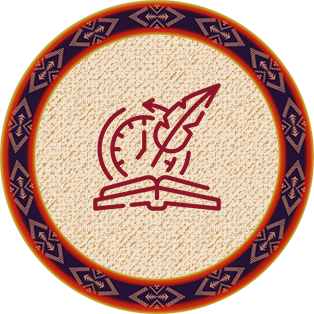
The American Indian Cancer Foundation (AICAF) is a native-led non-profit organization established in 2010 with a mission to eliminate the cancer burdens for American Indians and Alaska Natives (Al/AN) people through prevention, early detection, treatment, and survivor support. We imagine a world where cancer is no longer the leading cause of death for Native people.
A critical gap existed in cancer advocacy efforts for native communities highlighting a need for culturally sound and targeted approaches. Additionally, Al/AN data is often excluded from cancer research, creating a blind spot for the specific health needs of our communities. Our founders recognized these gaps and ACIAF emerged to focus on the unique cancer challenges faced by Al/ANs.
AICAF empowers Native communities by fostering a sense of ownership over solutions grounded in their wisdom. We provide support to facilitate this process, backing innovative, community-based interventions that engage our people in discovering their own cancer best practices. This collaborative approach has positioned AICAF as a trusted partner and resource.
AICAF’s mission is achieved by highlighting the specific challenges and solutions regarding Al/AN cancer burdens, providing training, technical assistance, and resources to empower communities, and identifying and backing Al/AN-led solutions to overcome cancer control challenges.
AICAF is a conduit of information and facilitates connections between tribal governments, federal/state/regional governments, and community groups through culturally-responsive projects.

Cancer is the leading cause of death for Al/AN women and second for men. Achieving better health outcomes requires addressing these deeply rooted issues and the corresponding disparities such as:
Understanding these factors is vital for appreciating the critical role AICAF plays. Our focus on culturally appropriate programs, community engagement, and collaboration with tribal partners directly addresses the specific needs and challenges faced in our fight against cancer.

Please note that AICAF’s role is to empower communities through prevention, early detection, and advocacy, and we are unable to provide financial assistance to cancer patients or their families. We encourage individuals to seek support from organizations specializing in patient care and financial assistance, such as the Patient Advocate Foundation, whose National Financial Resource Directory can help patients find assistance.
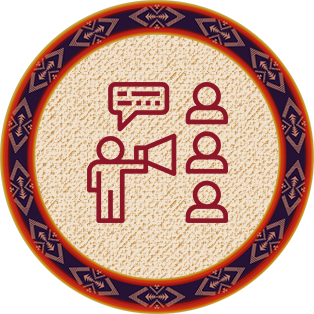
AICAF’s Prevention & Policy Program seeks to engage, educate, and empower Al/AN communities in the implementation of healthy lifestyle practices that help reduce cancer burdens. We work with tribes and Al/AN organizations to support these practices through tribal resolutions and policies.
We utilize culturally appropriate resources to engage community members and stakeholders to create Policy, Systems, and Environmental (PSE) change in communities, and we also offer training and technical assistance to Al/AN communities and organizations.
AICAF’s Research Program works with communities to identify research questions, methods, and funding opportunities that align with community needs and priorities. Our team supports the collection and use of population-specific data, aiming to find culturally relevant health solutions that are both effective and resonate within our unique communities. We prioritize appropriate dissemination of results, so all our communities have access to the information that is most relevant and useful to their efforts to improve their health and wellbeing.
The Evaluation Program supports the work of all AICAF teams and programs, providing insight on how to improve our efforts and better serve tribal communities. It establishes and monitors program outputs, outcomes, benchmarks, and success stories. The evaluation team accomplishes this through the use of logic models, evaluation plans, and reports that are shared with our communities.
AICAF’s Cancer Equity Program aims to reduce the cancer burdens on Native people by increasing cancer screening and early detection rates across Indian Country. Program staff focus their efforts on raising awareness of many common cancers faced by Indigenous people through: cancer awareness campaigns that promote screening, culturally tailored resources, cancer coalitions, trainings, and media tools, community education and outreach activities, and collaboration with clinics to help build capacity and improve tribal health systems.
While it is our mission to eliminate all types of illness in our communities, AICAF prioritizes the cancers that are most prevalent among Al/AN people. The team centers most projects around these topics: breast, cervical, colorectal, lung, and oral cancers, and HPV immunization.
Tobacco work is embedded into all of AICAF’s programs and projects. AICAF’s work is guided by our cultures and teachings, which include our sacred traditional tobacco. We acknowledge and honor that traditional tobacco is a gift from Creator, and many communities use it in a traditional way.
Mainstream evidence-based commercial tobacco control interventions often do not produce the same results for Indigenous people. Comprehensive strategies rooted in knowledge of customs, cultural traditions, and ways of knowing are proving to be promising practices for elevating the health of American Indian people. AICAF works with advocates across Indian Country to restore traditional tobacco practices, to reduce commercial tobacco abuse like cigarette smoking, and to prevent secondhand smoke exposure.

Explore our page on screenable cancers, and talk with your provider about what cancer screening options are right for you.
Sign up to join our community and receive the latest AICAF news, events and resources.
This is the most straightforward way to support AICAF’s work. You can make a one-time or recurring donation by visiting our donation page.
Every year, AICAF hosts Powwow for Hope, a nationwide fundraiser for American Indian Cancer Foundation that leads to a community event held in Minneapolis, MN, where hundreds come together to honor loved ones who have faced or are currently facing cancer by creating a space for healing. We welcome you to attend this event and consider volunteering as well. Sign up for our newsletter for more information.
You can organize a fundraiser in your community to raise awareness and support for AICAF’s mission.
Help raise awareness about cancer prevention and screening in Native American communities by sharing AICAF’s resources and information on social media or with your network.
You can advocate for policies that address the social determinants of health impacting cancer disparities in Al/AN communities. This might involve contacting your elected representatives or supporting relevant legislation.
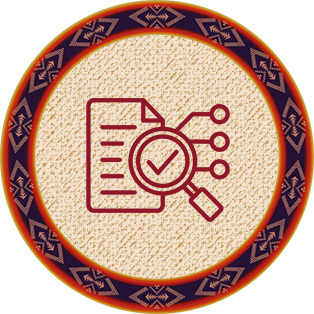
Cancer disparities in American Indian and Alaska Native (Al/AN) communities are influenced by several interrelated factors:
Higher poverty rates and limited access to healthcare services contribute to disparities in cancer prevention, early detection, and treatment.
Many Al/AN communities are located in rural or remote areas, making access to healthcare facilities and specialized cancer care challenging.
Limited availability of healthcare providers, particularly specialists, and lower rates of health insurance coverage can result in delayed diagnosis and treatment. Additionally, IHS funding per capita for Native Americans is significantly lower than funding for the general population. This disparity has profound implications for the health and well-being of Native American communities.
Cultural differences and historical mistrust of healthcare systems can lead to lower participation in preventive care and screenings. Language barriers and lack of culturally competent care also play a role.
Higher rates of tobacco use, obesity, and physical inactivity in some Al/AN populations increase the risk of cancer. Alcohol use and dietary factors may also contribute.
Exposure to environmental carcinogens, such as pollution and hazardous materials, can be higher in certain Al/AN communities.
Variations in the quality of healthcare services received, including screening, diagnosis, and treatment, can affect cancer outcomes.
Lack of awareness about cancer risk factors, symptoms, and the importance of early detection and screening can result in later-stage diagnoses.
Addressing these disparities requires a multifaceted approach that includes improving healthcare access, providing culturally competent care, enhancing education and awareness, and addressing socioeconomic and environmental factors.

Culture plays a pivotal role in cancer prevention and treatment among Al/AN communities. Traditional healing practices, deeply rooted in cultural beliefs, offer complementary approaches to Western medicine. Incorporating these practices can enhance overall well-being and potentially improve treatment outcomes.
Furthermore, understanding Al/AN perspectives on health and illness is crucial. These beliefs shape how individuals perceive cancer, seek care, and respond to treatment. Culturally competent care that respects these perspectives is essential for building trust and effective patient-provider relationships. Addressing historical trauma and systemic inequities, often embedded in cultural experiences, is vital for cancer prevention and control. By acknowledging the impact of these factors on health outcomes, healthcare providers can create a supportive environment that fosters open communication and encourages early detection and screening.
Ultimately, integrating cultural elements into cancer care can empower Al/AN individuals, leading to improved quality of life and increased cancer survival rates.
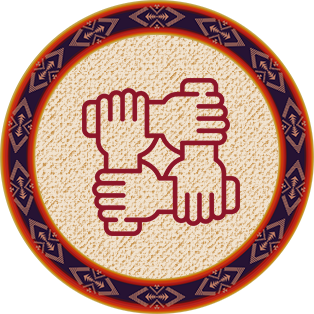
At AICAF, we believe in the inherent knowledge and strengths of our communities. Rather than imposing our own agendas, we engage with communities by meeting them where they are and supporting them in ways they request. This approach respects their autonomy and builds on their existing best practices, particularly in cancer prevention and survivorship.
We often act as a conduit between health systems and Al/AN communities, facilitating better communication and collaboration. This not only enhances the effectiveness of health interventions but also helps build trust between health systems and the Al/AN populations they serve. Trust is crucial for the successful implementation of any health initiative, and our role is to foster this trust through consistent, respectful, and culturally-sensitive engagement.
AICAF has a long-standing commitment to supporting innovative community interventions. By empowering communities with the resources and flexibility they need, we help them tailor their outreach and education efforts to fit their unique cultural contexts. This includes providing unrestricted funding for community-specific programs and events, which has proven to be effective in increasing participation and engagement.
We emphasize the importance of data in driving innovation and improvement. Our framework includes rigorous evaluation and analysis of past initiatives to identify what works best. This data-driven approach ensures that we are continually learning and adapting to meet the evolving needs of our communities. For example, despite the existence of general frameworks like those from other cancer advocacy organizations, our dedication to the specific needs of native populations allows us to address the concerning trend of worsening cancer outcomes among our communities.
Our principles of community empowerment, trust-building, and data-driven innovation are fundamental to fostering education and improving health outcomes. By respecting and supporting the knowledge within our communities, we can create effective, sustainable health interventions that lead to better cancer prevention and care.
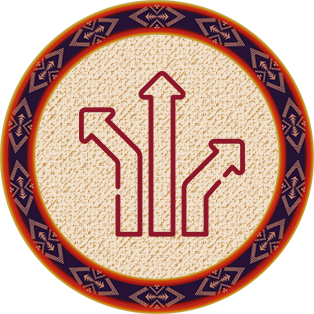
AICAF stands apart in the field by prioritizing culturally relevant care in partnership with health systems. We recognize the challenges Al/AN communities face in recruiting and retaining qualified healthcare professionals, which can hinder access to services for our people. A lack of culturally competent care providers often creates discomfort or misunderstanding.
To address this, AICAF bridges the gap by building trust and offering culturally relevant programs. We distinguish ourselves by adopting a strengths-based approach, tailoring programs to leverage a community’s existing skills and resources, thus maximizing impact.
In addition, as a Native nonprofit, we prioritize knowledge sharing, storytelling, and advocacy. We strive to inspire others in the field by openly discussing our successes and failures, fostering authenticity and vulnerability. Through these efforts, we not only deliver impactful programs but also contribute to the broader conversation on culturally relevant healthcare and advocate for its importance in improving health outcomes for Al/AN communities.
We are proud to see how empowering communities to address their needs not only raises awareness but also fosters a sense of ownership and action around critical health issues.

AICAF is headquartered in Minneapolis, Minnesota. However, our work and team members are spread across Indian Country, allowing us to have a wider reach and better serve our communities.
"*" indicates required fields
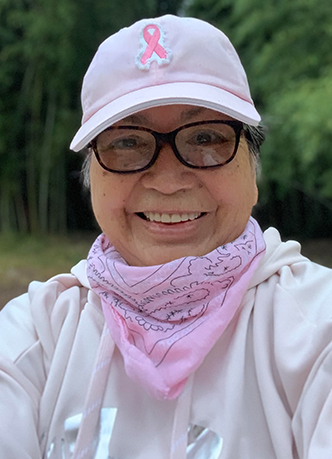
Breast Cancer
The first thing Elnora Thompson thought when she was diagnosed with breast cancer was, “Let’s get in there and get it out.” Elnora is a member of the of the Eastern Band of Cherokee Indians and resides in Cherokee, North Carolina. Health screenings, including mammograms and paps, were always stressed by Elnora’s mother. There was a history of breast cancer in her family, two of her mother’s sisters had been diagnosed.
Elnora knew her breast cancer risk and made healthy changes in her life: she quit smoking in 2000, started running, and always got an annual mammogram.
In 2011, at the age of 64, Elnora had a suspicious mammogram that required follow-up with a biopsy. The results were negative but required another mammogram in 6 months; this time, the next mammogram and biopsy came back cancerous. She was diagnosed with Invasive Duct Carcinoma Stage 1. “I didn’t have time for breast cancer”, Elnora declared. Although she was optimistic about her diagnosis, she still didn’t tell anyone. The IHS Women’s Wellness Program reached out to Elnora and encouraged her to tell her son. In doing so, he became her biggest support system. The breast cancer diagnosis led to a PET scan, which found 2 other primary cancer sites in her thyroid and lungs, that showed no symptoms. Elnora endured three different cancer surgeries in one year.
Elnora’s running club, Cherokee Runners, offered support and walked with Elnora in her first Relay for Life. The Cherokee Cancer Support Group was also a strong support system that reached out to Elnora and offered financial support during treatment and emotional support that contributed to her healing. Today, Elnora is cancer-free and volunteers with the Cherokee Cancer Support Group. The advice she shares with other American Indian and Alaskan Native Women is, “Get your screenings, my cancer was found early because I did screenings on time. I am also thankful for breast cancer because it helped find other cancers in my body.”
Thank you, Elnora Thompson, for sharing your breast cancer survivor story to encourage others to get screened.
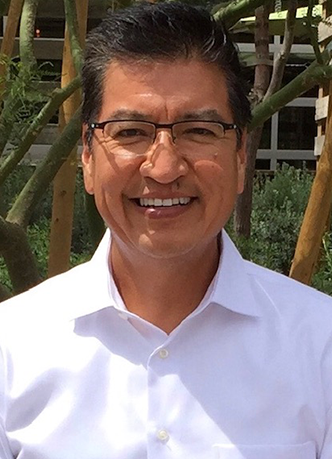
Colorectal Cancer
Colorectal cancer survivor Johnny Nelson of the Navajo Nation encourages people to be proactive about colon cancer screening and cognizant of their health, emphasizing that “preventive measures are the way to go.” When he lost a younger sister and brother to both colon and stomach cancers, Johnny made it a priority to get routine colonoscopies every few years.
His first colonoscopy was done at age 38. Despite national screening guidelines that advised people to begin colon cancer testing at age 50 (new guidelines recommend age 45), Johnny knew the disease could be hereditary and talked to his doctor about getting screened anyway. Individuals with a first-degree relative such as a mother, father, sister, or brother who have been diagnosed with colorectal cancer should begin screening at 40 years of age or 10 years younger than the earliest diagnosis of their relative. During the procedure doctors found a polyp attached to his right side, which resulted in removing six inches of Johnny’s colon at a later appointment, due to the size and shape of the polyp. After this Johnny became more mindful of his health, dedicating more time to fitness, nutritious eating and living a healthier lifestyle, all behaviors that can help reduce one’s cancer risk.
By December 2011, the time was approaching for Johnny to have another screening, just as he did every two to three years. Going into it, he felt he was at the “healthiest, fittest time of his life.” He was shocked when he heard doctors had discovered a large mass on his right side, which turned out to be stage 3 colon cancer. Initially he didn’t believe it because there were no physical indicators, but colon cancer often develops without any signs or symptoms. His friends and family were equally as shocked, but continued to be supportive through the healing process, especially since Johnny had already lost two siblings to colorectal cancer.
After removal of the tumor and six months of chemotherapy, today Johnny lives cancer free. Because he also has Lynch Syndrome – a hereditary condition that puts him at higher risk for recurrence – he stays on top of scheduling appointments with an oncologist, now visiting the doctor annually for a routine colonoscopy and to check his blood work. Johnny continues to be an avid supporter of screening and living a healthy lifestyle, as taking these precautions can help lower the risk of colon cancer in Native people. It’s important for American Indians and Alaska Natives to talk with their doctors about colon cancer screening; guidelines recommend both men and women ages 45-75 should be screened.
“It’s so simple and definitely inexpensive compared to the alternative,” Johnny stressed, “it’ll save you a lot of heartache.”
Thank you Johnny Nelson for sharing your story.
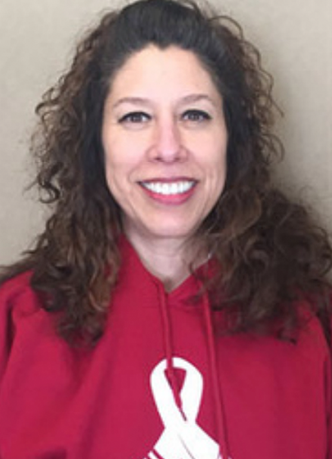
Cervical Cancer
Joni Buffalohead (Bdewakanton Dakota of the Sisseton-Wahpeton Oyate) has been getting regular Pap tests since she was a teenager. Following her second pregnancy at 30 years old, she received an abnormal Pap result. She returned to the doctor for follow-up care after giving birth to twin boys where she received the devastating news that she would need to have a full hysterectomy.
Joni shared with us a lot of the thoughts and feelings she had 20 years ago when she had her surgery.
Choosing to have her uterus removed was a difficult decision, especially since Joni and her husband had not yet decided if they were finished having children. Although the procedure would prevent future pregnancies, Joni elected to have the hysterectomy since she had already birthed a daughter and twin boys. Being unable to have children brought up a lot of difficult emotions for her. In the years since the procedure, Joni has found out that she may have had other options at the time.
Joni encourages other women to develop a strong relationship with their provider and have an active voice in their cervical cancer treatments. One regret that she has is that she did not educate herself more about cervical cancer treatments. Now that she has three adult children, she wishes that she would have had the opportunity to have more kids.
Joni’s diagnosis occurred during a time where not much was known about the links between HPV and cervical cancer. At first, Joni questioned who had first contracted HPV and spread it to whom. Questions of infidelity crept into her mind until she learned that HPV is extremely common in men and women and that HPV incidence might have occurred years prior to her marriage. In fact, 80-90% of people come into contact with HPV at some point in their life. Instead of unfairly blaming her husband, she made steps to protect their future generations from HPV-related cancers. She had honest conversations with her children about the importance of caring for your body: “I’ve been open with my children since early on. I taught my daughter to go to the OB-GYN regularly and my sons and daughter made the choice to get the HPV vaccine themselves.”
At the start of her cervical cancer journey, Joni made a promise to herself: “if I survive this, I will lead a more courageous life.” Today, she sings lead in a Native blues band Bluedog. Bluedog’s music gives voice to the struggles of Native people and celebrates the resilience of our people. With the knowledge that Native women experience higher rates of cervical cancer than white women, Joni now uses her voice to advocate for cervical cancer education and regular screening. She urges other women to get screened regularly and to use your voice for those who have gone through a cervical cancer journey: “if you go through it, please be an advocate. With your support, another woman might not have to.”
Thank you, Joni Buffalohead for sharing your story.
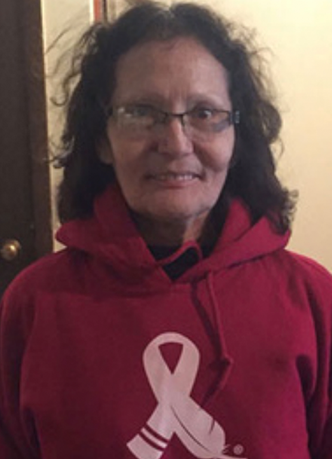
Cervical Cancer
Lugene Flores (Oglala Lakota) is a fierce advocate for Pap tests after ignoring results had a huge impact on her life. After the birth of her son at 24 years old, she received an abnormal Pap test result at a routine care appointment. Instead of following up with her doctor, she switched from clinic to clinic for ten years, scared of what the abnormal result might mean. She didn’t face it until frequent heavy, painful periods started in her mid-30s.
With steady encouragement and support from her husband, Lugene made the decision to address the decade long history of abnormal Pap results. She went to the doctor for a biopsy and found stage 2 cervical cancer in her uterus. Lugene initially went in for surgery to remove her cervix and uterus, but they found that cancer had rapidly spread. They needed to remove her ovaries and fallopian tubes as well. Today, Lugene is healthy and works as a patient advocate, educating young Native women on the importance of Pap tests.
“I was just too scared,” Lugene recalls, “I never thought there was a possibility that I could have cancer. I thought maybe it could have been an STD and I was too embarrassed to find out if that’s why it was abnormal.”
Lugene is sharing her story with the American Indian Cancer Foundation to reach other women out there who have had abnormal Pap results and are afraid. She says that for women who are scared, it’s important to talk about the possibilities with their healthcare provider. Otherwise, circumstances can get worse. She cautions: “Just because you ignore an abnormal test result, it doesn’t mean it’s not there. I ignored it for 11 years and it was still there – getting worse. It’s best to catch it early. The earlier you catch any disease, the better you are to fight it.”
Lugene feels she wouldn’t have been afraid to follow up on her abnormal result if she had had the right education beforehand. She advocates for stronger cervical cancer screening education for women. “It’s important for these young ladies to know how essential Pap tests are. It can save their lives. If they get an abnormal result, they need to have the education in place, in advance.”
For women to be more knowledgeable about their Pap test experience, she advises, “They need to connect with their healthcare provider and ask what’s next, what does that mean, and what is that test? You will find out that the test result is really nothing scary by asking about it. Ask your doctor, ‘How long does it take me to get the results of this test? What does abnormal mean? What are some reasonings that paps come back abnormal?’” Lugene encourages women to be their own advocate if the doctor is not being proactive or supportive enough.
Lugene has seen how the cancer burden has affected American Indians and urges men and women of all ages to prioritize screening. “In our Native communities, cancer runs pretty high. I watched a good friend’s mother die from cancer. I watched her waste away and I don’t want to see people die like that. I hope our people start listening and stop being scared of the unknown. We have to remember that we have to be here for our younger generations.”
Thank you, Lugene Flores for sharing your story.